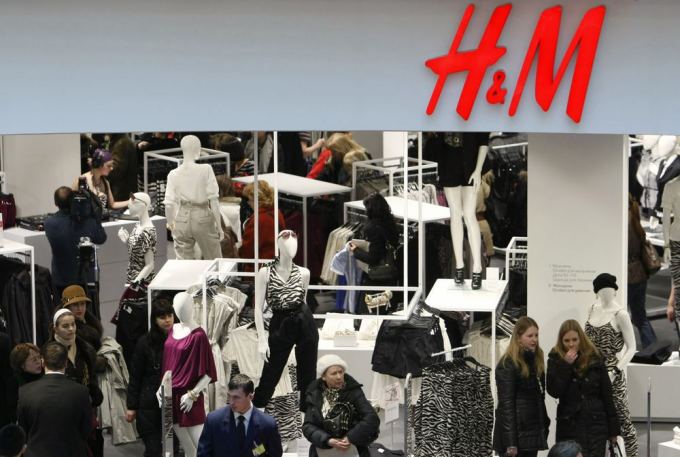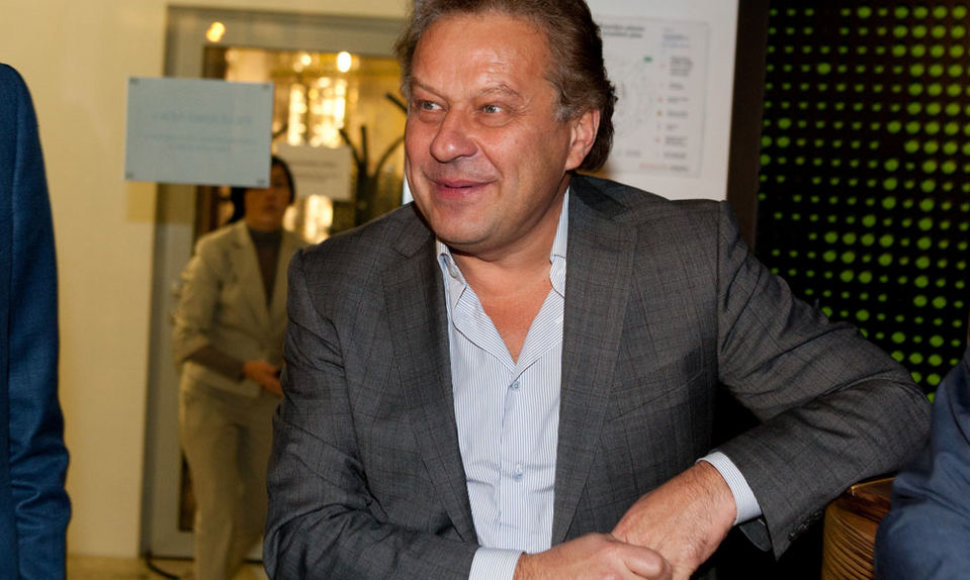Reluctant communicators
In recent years, there have been much speculation about when exactly the Swedish retail chain Hennes & Mauritz, better known as H&M, is opening the first shop in Lithuania. The media initially reported a date in the autumn, then changed it to August. Now, H&M representatives tell 15min that the opening is planned in the coming autumn.
H&M does not have a representative or an agency in Lithuania to take care of communication – that might be the reason why the company shares precious few details about its plans in the country and replies any question from the media with a laconic 'the company is happy to enter the Lithuanian market.'
“Lithuania is a big market with a young and fashion-conscious population. We've been closely following the Lithuanian market for several years now and we know that many people in Lithuania are looking forward to our arrival,” H&M spokeswoman Anna Eriksson tells 15min.
The second-largest retail-clothing company in the world with almost 3 thousand shops globally is opening two shops in Akropolis malls in Vilnius and Kaunas this year and several more in other Vilnius shopping malls next year.
 |
| Parduotuvė H&M |
No fear of competition
There has been also much talk about how H&M will bring an extra dose of competition and reinvigorate the notoriously overpriced Lithuanian clothing market where Apranga Group dominates largely unopposed and brings to customers brands like Zara, Pull and Bear, Mexx, Bershka, or Emporio Armani. The group owns 141 shops in the Baltic States, 37 of them in Lithuania.
Apranga Group CEO Perveneckas says the company has been making preparations for new competition. Apranga is revamping its shops visually and making sure that the offerings are as up to date as their competitors'.
This will not be the Lithuanian company's first encounter with H&M – the two have been sharing the spotlight in Latvia for almost a year now.
Their shops can attract buyers who have bought their items abroad. Possibly, H&M will pick up customers of Gariūnai, also those who shop for clothes in grocery stores. (Rimantas Perveneckas)
“In Latvia, we are dealing with genuine competition, but the world did not end when H&M came to Latvia – nor will it in Lithuania. H&M does not affect our performance particularly significantly, only the sales of certain products,” Perveneckas says.
He notes that the Swedish brand targets the children's clothing market, the segment that Apranga caters for only marginally. Competition in Latvia's youth market was as expected, yet Perveneckas does not disclose the figures of how the market changed after the coming of H&M.
He believes that potential buyers at H&M will be people who prefer cheaper and lower-quality garments: “Their shops can attract buyers who have bought their items abroad. Possibly, H&M will pick up customers of Gariūnai (open-air marketplace outside Vilnius), also those who shop for clothes in grocery stores.”
Apranga does not expect a drop in turnover just because of H&M.
“They pursue a very aggressive campaign, saying how fashionable they are; but let's be honest – 80 percent of what H&M offers are well-priced primitive products,” Perveneckas summarizes.
Bosses shop abroad
Sigitas Besagirskas, director of the Economics and Finance Department of the Lithuanian Confederation of Industrialists, claims that H&M will hardly cause an upheaval in the Lithuanian clothing market – not even a stir.
That, he says, can be inferred from precedents of other brands, like Lindex that has been operating in Lithuania for years now. The company's pricing policy is the same it uses in other European markets, yet that did not change much.
 |
| Sigitas Besagirskas, |
“It's great that H&M is coming, but one player will not transform the entire market. H&M is not a brand for everyone. Perhaps its arrival will induce other retailers to cut their prices a little, but I do not believe that one chain can stir everything up,” Besagirskas says.
He adds that the majority of people in Lithuania will hardly notice what H&M has to offer – especially those who shop for clothes in second-hand stores. And these make up a significant share of the market in the country.
Besagirskas claims, however, that the Lithuanian retail-clothing market badly needs more competition, because the prices are exceptionally high. He says he had a chance to see it once more several months ago when he went to New York and saw good-quality garments on sale for one-third or one-fourth the price in Lithuania.
Many Lithuanian business bosses go abroad to refresh their wardrobes, Besagirskas says, adding that another unoccupied niche in the country is luxury brand outlets.
“Sixty or seventy percent of company leaders say they buy their clothes outside Lithuania. There's a shortage here of high-end outlets selling Calvin Klein, Lacoste, Pierre Cardin items from older collections for discount prices,” Besagirskas says. “Lithuanians go to other countries for such clothes. If we had outlets here, people would pay value-added tax to the Lithuanian budget and spend money here.”
Impulse to even out prices
 |
| Simonas Bartkus |
Meanwhile Simonas Bartkus, president of the Lithuanian Marketing Association, maintains that the coming of H&M will have a huge impact on the Lithuanian retail-clothing market. The factor of success here is that buyers are familiar with the brand well before the opening of the first shop.
“Over the last several years, we've seen a convergence of prices in the Lithuanian clothing market and those in other European countries. Consumers travel more freely, they can choose and compare products, therefore sellers must react and adjust prices so that they match those in Europe. I think that the coming of H&M will present yet another impulse to completely even out the prices,” Bartkus says.
Linas Lasiauskas, CEO of the Lithuanian Association of Clothing and Textile Companies, agrees that the new player should force Lithuanian retailers to cut prices.
“I believe that other market players will be obliged to lower their prices, because H&M is coming directly, while most other international brands here are represented by big Lithuanian retail companies. Competition always leads to better services and lower prices. I hope this rule will prove correct in this case, too,” he says.













